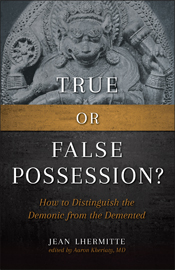Pope Gets to the Essence of the New Evangelization
Commentary on the Holy Father's news-making interview.

If we limited ourselves to reading headlines in the mainstream media about Pope Francis’ interview published in America, one could have formed the impression that he was directing the faithful to stop promoting the truth about marriage in the public square. The following headlines represented well the media’s immediate response to and characterization of the Pope’s interview:
Take, for example, the following representative headlines:
"Pope Francis Tells Church to Stop ‘Obsessing’ Over Gay Marriage (Mediaite).
"Pope Bluntly Faults Church’s Focus on Gays" (The New York Times).
"Pope Francis: Church Can’t ‘Interfere’ With Gays" (CNN).
"Pope Francis: The Church Needs to Mellow Out on ... Gay Issues" (San Francisco Chronicle).
If we take time to read the full interview, however, we will find there is no truth to this. On the contrary, the Holy Father is teaching us how to evangelize, and his message is particularly important for those committed to the evangelization of culture for marriage and family.
Pope Francis is cautioning people against falling into the trap of moralism: that is, the temptation to reduce Christianity to simply an ethical system where faith — divorced from the message of salvation and the encounter with Christ — is understood as mere obedience to law.
Pope Francis’ teachings on the essence of Christianity are strikingly similar to those of Pope Benedict XVI.
Take, for example, Benedict’s homily at the funeral Mass of Father Luigi Giussani, founder of the Communion and Liberation movement:
"In this way, [Giussani] understood that Christianity is not an intellectual system, a packet of dogmas, a moralism; Christianity is, rather, an encounter, a love story; it is an event."
From Benedict’s 2005 encyclical Deus Caritas Est (God Is Love):
"We have come to believe in God’s love: In these words, the Christian can express the fundamental decision of his life. Being Christian is not the result of an ethical choice or a lofty idea, but the encounter with an event, a Person, which gives life a new horizon and a decisive direction" ("Introduction").
Compare this to Pope Francis’ interview:
"The Church’s pastoral ministry cannot be obsessed with the transmission of a disjointed multitude of doctrines to be imposed insistently. ... The proposal of the Gospel must be more simple, profound, radiant. It is from this proposition that the moral consequences then flow. ... The proclamation of the saving love of God comes before moral and religious imperatives. Today, sometimes it seems that the opposite order is prevailing. ... We have to find a new balance; otherwise, even the moral edifice of the Church is likely to fall like a house of cards, losing the freshness and fragrance of the Gospel."
Stating the Church’s teaching on abortion, marriage and contraception is clear and referring to the fact that some have complained that he has not spoken much about them, the Holy Father said, "We cannot insist only on issues related to" them.
However, most importantly, he reminded us, "When we speak about these issues, we have to talk about them in context."
The context that he is referring to is the context of an encounter with God’s love and mercy rather than moralisms that sound unreasonable out of context. "The thinking of the Church must recover genius and better understand how human beings understand themselves today, in order to develop and deepen the Church’s teaching."
This is the essence of the New Evangelization: meeting people where they are, understanding what they are seeking and leading them to an encounter with the Person who holds the answers to all of our yearnings, our Lord Jesus Christ.
William May is president of
Catholics for the Common Good (CCGAction.org).
- Keywords:
- Oct. 20-Nov. 2, 2013

















